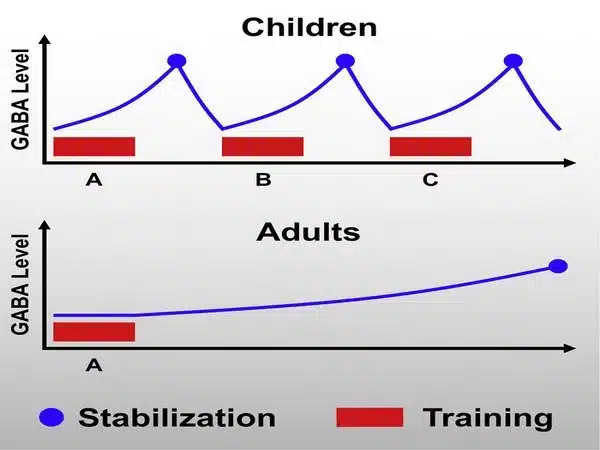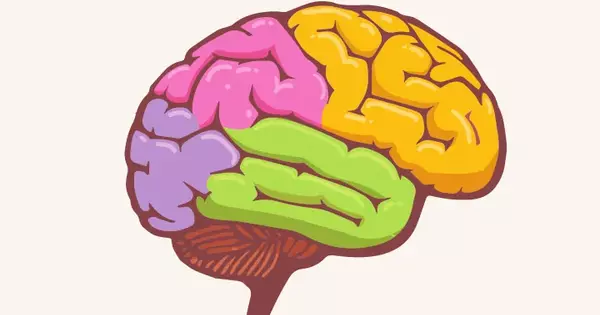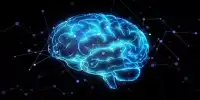It is a commonly held belief that children learn more quickly than adults, and there is some evidence to support this idea. Children’s brains are more malleable, or plastic, than adult brains, which means they are better able to adapt to new experiences and learn new information.
If you’ve ever thought your elementary school kids were “smarter” than you – or at least faster at picking up new information and skills – a new study published in Current Biology on November 15 suggests you’re right. The new study also provides a reason: differences in a brain messenger known as GABA, which stabilizes newly learned material, exist between children and adults.
“Our findings show that children of elementary school age can learn more items in a given period of time than adults, making learning more efficient in children,” said Brown University’s Takeo Watanabe.
Their findings revealed that children experience a rapid increase in GABA during visual training that lasts after the training is completed. This is in stark contrast to adult GABA concentrations, which remained constant. The findings suggest that children’s brains respond to training in a way that allows them to stabilize new learning more quickly and efficiently.
Our findings suggest that children exhibit highly efficient inhibitory, GABAergic processing despite inhibitory failures observed in other domains such as cognitive control or attention. This suggests that GABAergic processing in various aspects of cognitive function may mature at different rates.
Takeo Watanabe
“It is commonly assumed that children learn more efficiently than adults,” Watanabe said. “However, scientific support for this assumption has been, at best, weak, and, if true, the neuronal mechanisms responsible for more efficient learning in children are unclear.”
GABA differences were one obvious place to look for answers. While previous research had done so, the researchers noted that GABA in children had only been measured at a one-time point. It also wasn’t measured at a time that had any special significance in terms of learning. So, they set out in the new study to see how GABA levels change before, during, and after learning. They were also interested in how this differed between children and adults.
The study used behavioral and cutting-edge neuroimaging techniques to investigate visual learning in elementary school-aged children and adults. It discovered that visual learning increased GABA levels in children’s visual cortex, the brain area that processes visual information. That GABA boost lasted for several minutes after training.
What they saw in adults that were offered the same visual training was notably different. In adults, there were no changes in GABA whatsoever.

The discovery predicts that training on new items increases the concentration of GABA in children quickly, allowing learning to be stabilized quickly. This was supported by additional experiments.
“In subsequent behavioral experiments, we discovered that children stabilized new learning much faster than adults, which agrees with the widely held belief that children outperform adults in their learning abilities,” says Sebastian M. Frank, now at the University of Regensburg in Germany. “Our findings point to GABA as a key player in improving learning efficiency in children.”
The findings suggest that children are likely to acquire new knowledge and skills more rapidly than adults, they say. It should add further encouragement for teachers and parents to give children many opportunities to acquire new skills, whether that’s learning their time’s tables or riding a bike.
The findings may also alter neuroscientists’ perceptions of child brain maturation.
“Our findings suggest that children exhibit highly efficient inhibitory, GABAergic processing despite inhibitory failures observed in other domains such as cognitive control or attention,” Frank said. “This suggests that GABAergic processing in various aspects of cognitive function may mature at different rates.”
“Although children’s brains are not yet fully matured, and many of their behavioral and cognitive functions are not as efficient as in adults,” Watanabe continued, “children are not, in general, outperformed in their abilities by adults. On the contrary, children’s abilities are superior to adults in some domains, such as visual learning.”














